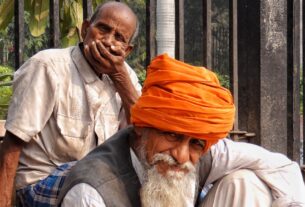Sex workers in Karnataka continue to be neglected by the government. With only one recent welfare scheme for them, there are no awareness campaigns to educate them about it.
Sex workers in Karnataka are unaware of government schemes that could help them. Karnataka Women Development Corporation (KWDC) has only one scheme, Chetana, for aiding sex workers which was started in 2021. However, there have been no awareness initiatives taken by the KWDC. As such, sex workers are still struggling to reach the official’s help.
Lakshmi (name changed) is 46 years old and has been a sex worker for the past 25 years. She has never known any government scheme for sex workers. “I still don’t know any schemes that the government gives out for us. Also, I got no help from the government even with my children’s upbringing.”
She also said that in over two decades, no government agent or employee has reached out to her to educate her about child welfare schemes for her children either. “I had to send away my sons because I couldn’t take care of them here, and I didn’t want them to know what I do. They are in their 30s now, and they still don’t know. It was expensive, but I had to manage by working more than it was necessary,” she said.
Originally from Ramanagara, Lakshmi moved to Bengaluru with her husband and children when she was 26 years old. She worked briefly at a medicine factory, and then moved to a garment factory. In both factories, she faced sexual harassment and was abused by her supervisors. “They used to ambush me and use me. I had no financial support so I couldn’t even leave.”
Through these encounters at the garment factory, Lakshmi’s life in the sex trade began and continued for over two decades. She is convinced that if she had known about any government programme to resettle or rehabilitate sex workers, her life would have been different.
Professor of Human Rights and Human Development, Payel Rai Chowdhury said that there has been little initiative from the government to look into the welfare of sex workers. “At least if they could have welfare schemes for the children who grow up in this environment; it would take a lot of burdens away from their mothers.”
She suggested the creation of full-time crèche facilities as one of the major steps towards helping sex workers. “These children have no help for academic or extra-curricular growth, so after a point they drop out of school. If they are in school, after school hours there is no one to help them with schoolwork or other activities so they loiter around the streets or waste their hours.” She added that the children need some place where they are looked after and disciplined, especially at night, for their own security.
Mirza Faizen Assad, Bengaluru-based civil lawyer, said that there are no clear rules and policies put in place to safeguard the rights and safety of sex workers. “It is crucial to give sex workers access to legitimate assistance, healthcare, and educational opportunities. Otherwise, it is very difficult for them to seek out by themselves, for themselves or the future generations.”
Manjunath (name changed), from the Karnataka Sex Workers Union(KSWU) said that sending children away to boarding school or to live with relatives is the only way sex workers can ensure protection to their children. “This deprives them of any family relations and makes it far more expensive, but most of them have no option. They don’t want their children growing up in such an environment.”
Prof. Rai Chowdhury added that for children, living in such an environment is extremely detrimental. “Many of the boys get involved in drug rackets at an early stage of their lives, and continue to follow that; while the girls are either married off to lowly men or take up the same profession.”
Lakshmi sent one of her sons away to boarding school, and others to live with her in-laws at her native village in Ramanagara. “I couldn’t afford sending them both to boarding school, so I only sent my older son there. My other son was brought up in the village.” As a result, she said her older son studied further and now works at a finance firm. However, her younger son left education, did not pursue further studies, and now is a farmer in Ramanagara.
Manjunath further said that among the 3,000 sex workers working with KSWU, only 1,000 have children. Therefore, only 33 percent of sex workers have children, while 67 percent choose not to.
“It depends a lot on our husbands or partners, because we have no other support system, financially or otherwise,” said Lakshmi. In most cases, sex workers struggle to support themselves. Therefore, children or families are only an option if they have financially stable or supportive husbands or partners. “It is very rare for that to happen. They are either absent, drunkards, drug addicts, or abusive,” added Lakshmi.
A Press Information Bureau (PIB) report dated 2014 notes that a survey in 2004 showed over 2,00,000 sex workers in the state. Karnataka ranked among the top 10 states with the highest number of sex workers. Since the 2004 survey and the 2014 report, there have been no further PIB reports on the population, welfare, or action plans regarding sex workers in the country.



